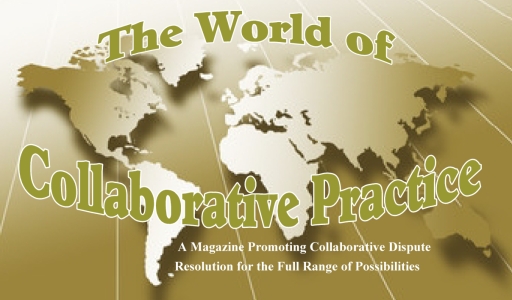
Tags
Related Posts
Share This
The Divorce Weekend: A Stream-Lined Approach to Collaborative Law
In almost every consultation, the prospective clients have two questions – how long will this take and what will be the cost? The standard answer is always, “Well it will depend on how many issues we have to resolve and how well you and your spouse are willing to work together.” After the divorce is finalized, I sometimes receive feedback that they didn’t realize it was going to take so long or cost so much. This, of course, is the unpredictable nature of the practice.
To address this opportunity for improvement, we have started a 2-day divorce program or The Divorce Weekend that charges a flat fee. The fees are paid before the weekend is scheduled. Each spouse hires either Sandra Young or Brian Garvey as his/her collaborative attorney. We make it very clear to the clients upfront that we are two separate attorneys practicing law individually. Each attorney has a signed engagement letter with his/her client with all of the necessary provisions for re-scheduling, refunds, and details what is included and what is excluded. The clients are carefully screened to make sure that they are both emotionally prepared to be able to move ahead and make the necessary decisions in such a condensed time frame. A coach might be used to help keep the process moving forward and encourage the couple to continue on if things start to get complicated. A child specialist might also become involved and do some work ahead of the weekend session pertaining to parenting issues that both attorneys feel need to be addressed prior to The Divorce Weekend.
We also provide a financial checklist that must be completed at least 10 days before The Divorce Weekend begins. All of the bank statements, paystubs, credit card statements, house value – everything is accounted for ahead of time. We then supply this to a Financial Neutral expert that is separately retained as a part of the team. Each attorney talks to his/her client before the weekend to find out what are their dreams, hopes, concerns, and hot button issues.
To start the weekend, we first review the Participation Agreement that is signed by everyone involved. Just as a typical collaborative case, we start with the clients talking about what they want out of the process – their hopes, goals and concerns; however, this is where the similarity ends. Instead of stopping there with assignments to gather the financial docs or discuss parenting time and then scheduling a series of team meetings, phone calls, and professional meetings, we get to it right away because the assignments have already been done and we can press on.
We work on everything over the weekend. We discuss custody, parenting time schedules, holidays and draft the parenting agreement. After the parenting portion is completed, the financial neutral joins us. All of the financial decisions are made over the weekend – the division of property, considerations involving real estate, if maintenance is appropriate. The timing can last several hours and might involve working through lunch and dinner and late into the evening. The couple understands that they need to focus their attention solely on their divorce weekend and make childcare arrangements, turn off cell phones and be ready for an intense work session. When the weekend is over, all of the necessary court documents are signed and all that is left is to file and schedule the court date.
In one case that we handled, one of the clients was from out of town. While we anticipated this to be a challenge, it worked out very well because when the client came in for the weekend, we were able to complete the entire divorce by the time the client had to return. The local spouse was the petitioner and appeared in court. The case was over for the out-of-town client and went very smoothly. As in any collaborative law case, we encountered some bumps and difficulties but we worked through them and reached the necessary compromises for the agreements to proceed. We took breaks, allowed time for each attorney to meet with the client individually, made other times for the professionals to privately discuss the case and used our collaborative and mediation backgrounds to be able to reach an agreement in a very short period of time.
The Divorce Weekend is not for everyone but this is a great opportunity for clients that are already emotionally separated and mutually want their divorce finalized quickly.
Please go to www.divorceweekend.com for more information.









Share your thoughts here and in your network.